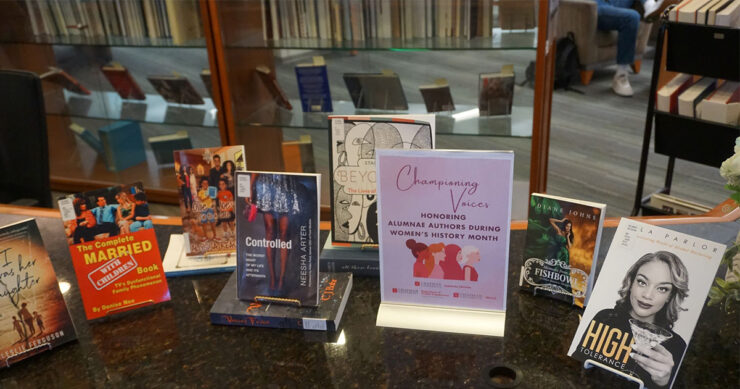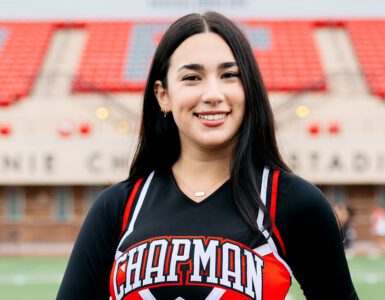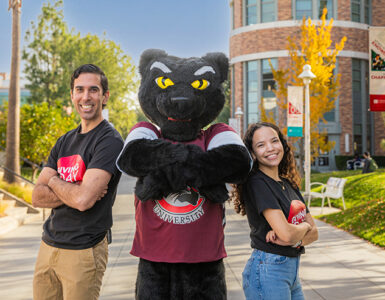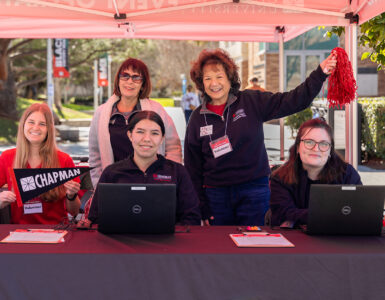In honor of Women’s History Month, Leatherby Libraries and the Department of Student Engagement have collaborated to spotlight works by alumni female authors. Along with a case of featured titles in the library, there will be a display of wall art and posters in Argyros Forum. A complete bibliography of the display can be found on the Leatherby Libraries website.
We spoke with some of the authors featured in the collection to find out more about what inspires them as an author. They also share their advice for aspiring writers.
 Sarah Nicole Smetana ’09
Sarah Nicole Smetana ’09
Author of “The Midnights”
What inspired you to become an author?
I’d always been a writer in one form or another, from creating silly worlds as a kid to a focus on poetry and song lyrics as a teenager. When I came to Chapman, I knew I wanted to study writing, but at the time there weren’t any creative poetry workshops — only fiction workshops. So, I decided to give it a try, and never looked back.
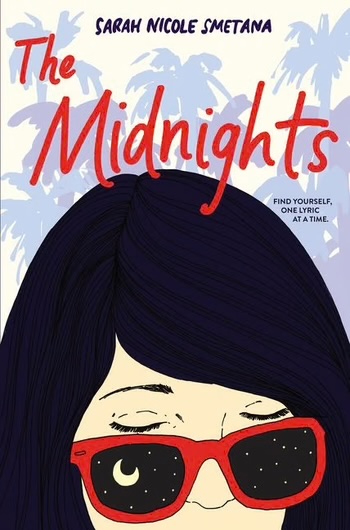 How did Chapman support and prepare you for life and your career? Any skills or lessons that have stuck with you?
How did Chapman support and prepare you for life and your career? Any skills or lessons that have stuck with you?
After one particularly brutal critique, where my fellow students ripped my submission to shreds and I felt completely defeated as a writer, my professor left me a note that reminded me to listen to my own voice and trust my instincts. That has always stuck with me. The point was not to simply ignore the feedback of my peers, but to learn how to sift through their suggestions in a way that was conducive to my own vision for the story. Because in the end, you’re not writing their story — you’re writing your story. So be open to feedback, but hold your vision close. It’s a tough balance to learn, but important.
What advice/encouragement can you share with students or recent graduates who may want to become an author?
It’s not a race. This is advice I have to continually give myself, too. With everyone’s lives on full display on the Internet, it’s so easy to get distracted by the careers of others. But you can’t control the industry, only your work. Keep your eyes on your own paper, and focus on the story you want to tell. Also, it’s not the worst thing in the world to have a day job that gives you health insurance. If you want writing to be your priority, you will find a way to make that happen.
Is there anything else you would like to share?
The most important thing you can do to become a better writer (besides just write consistently) is read, and while you’re in school, that means reading and offering feedback on others’ work. This sharpens your own editorial eye. All the weeks when you’re giving feedback to others are just as important as the three weeks a semester when they are giving feedback to you. And if you have classmates that consistently offer thoughtful feedback, hang onto them! You might just find critique partners for life, and that is invaluable.
 Elizabeth Klehfoth ’10
Elizabeth Klehfoth ’10
Author of “All These Beautiful Strangers”
What inspired you to become an author?
I’ve always loved writing and storytelling. From as far back as I can remember, I knew I wanted to write books — even if nobody read them or I made no money doing that. I still feel that way. It’s just something that I love doing.
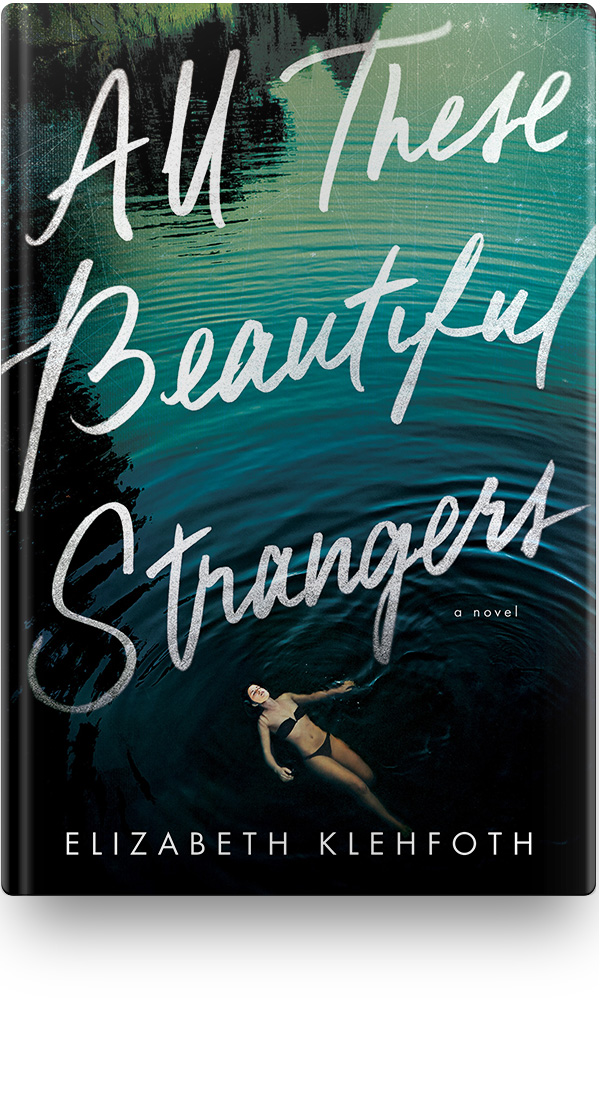 How did Chapman support and prepare you for life and your career? Any skills or lessons that have stuck with you?
How did Chapman support and prepare you for life and your career? Any skills or lessons that have stuck with you?
I majored in creative writing at Chapman, and while I came in with a general love of storytelling, I don’t think I had a good technical grasp of storytelling to start. In both my writing and lit classes, I learned how to deconstruct a story, really break it down into its fundamental parts, and that allowed me to understand if a story was working, what made it work or, if it wasn’t working, why. In many ways, Chapman gave me the basic building blocks I needed to hone my craft.
I also met so many people at Chapman who became instrumental in my life after college — my husband, some of my best friends — all creative, hard-working people. In fact, one of my good friends, Brendan Kenney, who was a creative producing major at Chapman, was the one who read my book and passed it along to a producer he was working with, Bruna Papandrea, who produced “Gone Girl” and “Big Little Lies.” Bruna ended up optioning “All These Beautiful Strangers” under her production company, Made Up Stories, and it’s currently in development with Kenney also as a producer. It’s been amazing to work with Brendan and Bruna, and those are connections I wouldn’t have made if it hadn’t been for Chapman.
What advice/encouragement can you share with students or recent graduates who may want to become an author?
I think when you’re just starting out, the publishing industry and the whole process to “get in” — query letters, agents — can seem really intimidating. It can feel like this giant wall built to keep you out, which can be demoralizing and suck all the wind out of your sails before you even get started. But I found that in many ways, it’s the opposite — agents and editors are hungry for good stories and they’re really welcoming to new voices. So, write that book that you can’t get out of your head, fine-tune your query letter (again and again and again), and then cold-query your list of dream agents. You might be surprised who returns your email.
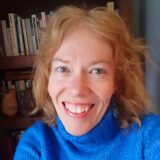 Stacy Russo (MA ’98)
Stacy Russo (MA ’98)
Author of “Beyond 70: The Lives of Creative Women”
What inspired you to become an author?
My mom told me that my first word was “book,” which makes sense because she instilled a love of books, reading and libraries in me from a young age. She took me and several of my friends in elementary school to the public library where we would check out stacks of books. This opened the world for me. Before I would have had any thoughts about being a writer, I had a love for reading.
In the 1980s, I experienced the most influential period of my life when I was a teenager in the Southern California punk rock scene. With my friends, I created fanzines (often called just “zines” now), which are self-published booklets, pamphlets or magazines. This was part of DIY culture and a punk rock ethic of self-expression and putting your creative work out in the world. I feel this gave me a taste for what it would be like to be a writer. I started creating zines of my poetry back then. From that point on, I had a strong desire to share my writing with others. Being a writer has just felt like who I am and not necessarily something to become, if that makes sense.
My writing journey has had many twists and turns. The last 10 years have been the most prolific and creative of my life. It is important to me that I create books that hopefully contribute in some way to making the world a more just and peaceful place.
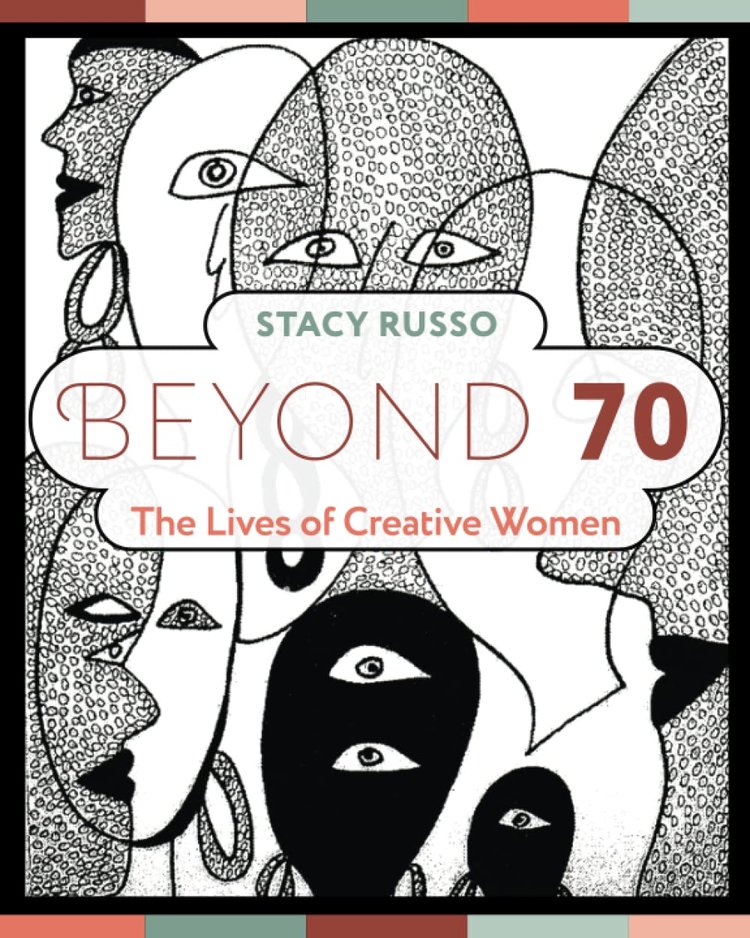 How did Chapman support and prepare you for life and your career? Any skills or lessons that have stuck with you?
How did Chapman support and prepare you for life and your career? Any skills or lessons that have stuck with you?
I received my MA in English literature from Chapman in the late 1990s after receiving my BA in English from UC Berkeley. I understand that pursuing an MFA degree may be the better path for many writers, but I was more interested in literary analysis. I wanted to continue my study of literature from Berkeley, although I did a lot of creative writing, especially poetry, outside of school at this time.
I had some amazing professors at Chapman while pursuing my MA. They were caring and supportive of me. This includes professors Tom Massey, Matthew Schneider, Martin Nakell and Myron Yeager. I learned so much from them. They made my life more magical. I worked full-time while pursuing my MA, so I took all evening classes. I remember driving on the freeway in my pickup truck after 10 p.m. on evenings when I had a class and feeling so alive that it was hard to get to sleep when I got home even though I had to be up early for work.
What advice/encouragement can you share with students or recent graduates who may want to become an author?
I would tell them to live a literary life and immerse themselves in a creative community. What I mean by this is to read a lot, stay current on what books are coming out, read book reviews, and support other writers by going to author events and book releases. The late author Carolyn See advocated for a wonderful practice of writing “love letters” to writers you admire. After reading an article, poem, or book that you enjoyed, take a few moments to email the writer.
I would also tell them to be kind to themselves and have good self-care practices. Rejection is part of the writing life, which can come in the form of reviews or notices from publishers.
Finally, I would say to find your own rhythm and a practice that works for you, which may not be writing every day. A writing coach, Scott O’Connor, once told me something great, which was to always have one foot in your writing. Having two feet in can cause lack of clarity and burn out. Obviously, if you have two feet out, you are disengaged from your work and it may be difficult to find your way back.
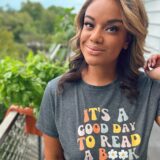 Ella Parlor ’11
Ella Parlor ’11
Author of “High Tolerance”
What inspired you to become an author?
Honestly? Spite. I saw a huge gap in the book world — success guides for those of us navigating high-stakes industries with a side of messy, real life. “High Tolerance” is basically the brutally honest mentor I wish I’d had years ago. The desire to write “High Tolerance” stemmed from my own journey and the realization that there was a glaring gap in literature for people like me — ambitious professionals navigating the complex corridors of high-stakes industries. Plus every other book about alcohol is from the perspective of addiction, and I wanted to offer a fresh context.
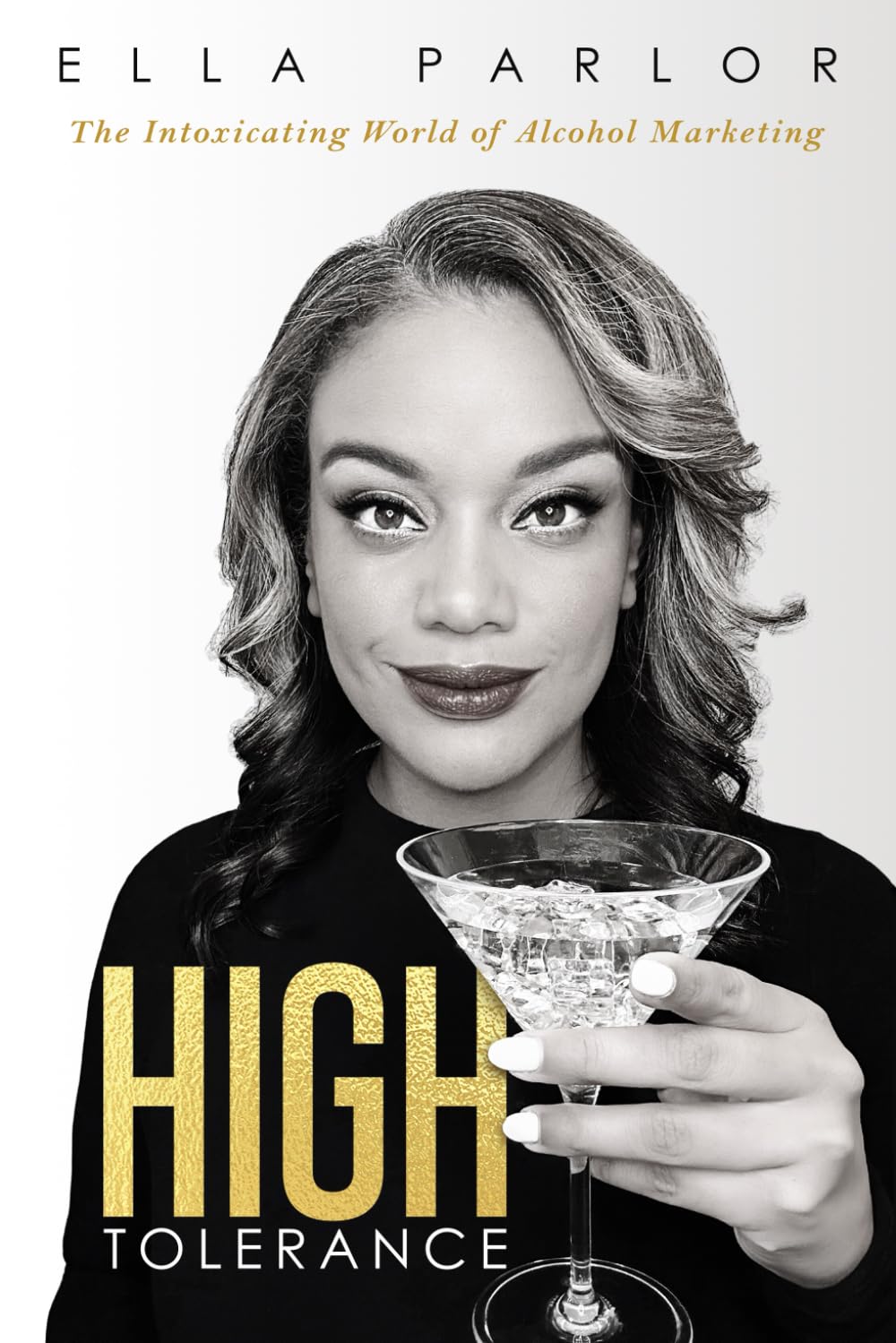 How did Chapman support and prepare you for life and your career? Any skills or lessons that have stuck with you?
How did Chapman support and prepare you for life and your career? Any skills or lessons that have stuck with you?
Chapman taught me a lot, but the real lesson was about networks and a little thing called kindness. People matter. Chapman not only provided me with a robust educational foundation but also instilled in me the importance of building and maintaining strong relationships. A lesson that has stayed with me is the art of kindness and service — it’s remarkable how far a little compassion can take you. And of course, the ethos of lifelong learning — every day offers a new opportunity to grow, both personally and professionally.
What advice/encouragement can you share with students or recent graduates who may want to become an author?
Write EVERYTHING down. Emails, triumphs, the cringey stuff. Trust me, those bits are storytelling gold. The little moments end up being the big ones in retrospect. If something feels super off/weird/inappropriate, journal it! I cannot stress enough the importance of documenting your work. Keep a journal or a diary, and don’t overlook the digital trails — emails, feedback, or any accolades you receive along the way. These snippets can add depth and authenticity to your writing. Sometimes the small details that often paint the most vivid pictures.
Is there anything else you would like to share?
Give back whenever you can; it’s good karma (and great relationship building). Always be eager to serve others and give your best in whatever you do. You never know who might be observing and willing to mentor you. Also, take care of yourself. Burnout is real, and your body’s the only vehicle you’ve got for this wild ride — treat it with the utmost respect and care.
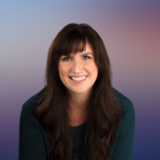 Leslie Ferguson (MA ’07, MFA ’08)
Leslie Ferguson (MA ’07, MFA ’08)
Author of “When I Was Her Daughter”
What inspired you to become an author?
When I was in grad school at Chapman University, I loved my writing classes and professors, and I was eager to learn and be a part of the writing community. My writing naturally evolved into what eventually became my memoir, “When I Was Her Daughter.” I’d always thought of myself as more of a poet than a writer of creative nonfiction, but my story continued to nag at me, and I just had to write it. In 2005, after I got divorced, I started seeing a therapist who encouraged me to tell my story as truth rather than fiction. It took many years to process and organize the trauma I experienced and to learn the craft of memoir and how fiction and memoir go hand in hand. It was extremely cathartic and healing. Writing that book has opened up so many opportunities for me as an author, and I’m happily working on my second book, a novel about family betrayal and the search for love and self.
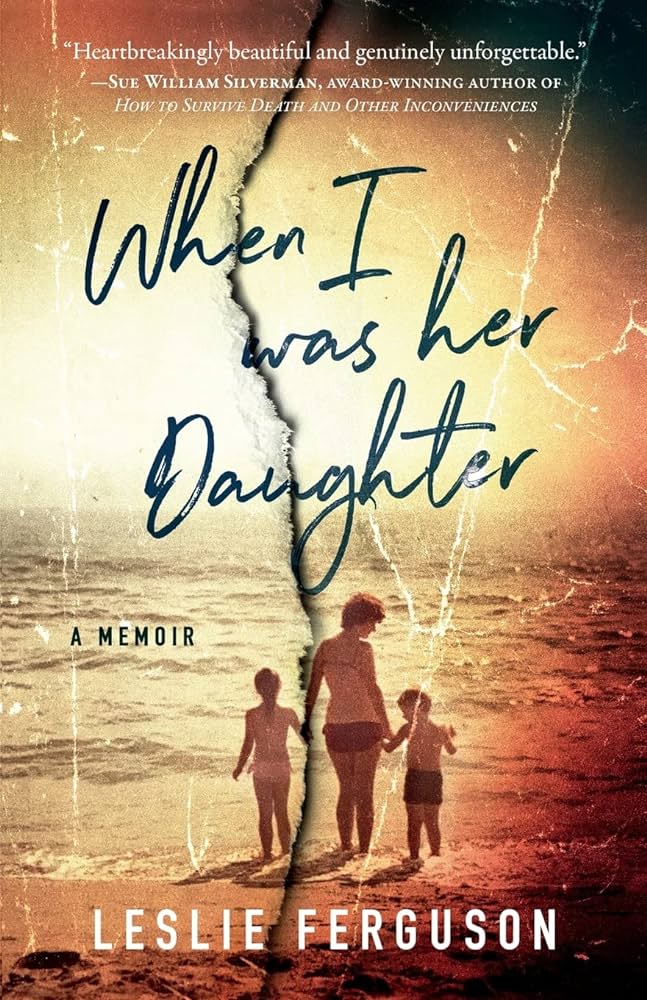 How did Chapman support and prepare you for life and your career? Any skills or lessons that have stuck with you?
How did Chapman support and prepare you for life and your career? Any skills or lessons that have stuck with you?
Chapman helped me gain confidence as a writer. Before that, I hadn’t believed in myself. Dr. Martin Nakell was the first professor whose belief in me motivated me to keep going. The read-and-critique classes I took taught me how to give and receive critical feedback, which is a crucial and invaluable element of the writing process. It’s one thing to write and another to read and appreciate the art of writing (as an author and a reader), but Chapman taught me how to approach reading and writing at another level. Chapman gave me thicker skin and taught me not only the importance of constructive feedback but also how to hone my own critical eye. I am a better writer and editor because of it.
What advice/encouragement can you share with students or recent graduates who may want to become an author?
The first, most important thing is to keep going. If you love to write and desire to be a published author, you must learn to believe in yourself and turn your self-doubt into meaningful lessons and fuel to improve. Read widely. Write a lot. Revise, revise, revise. Learn as much about the craft as you can. Listen to constructive criticism — sometimes the hardest things to hear are the most valuable pieces of feedback.
A critique group member once told me he didn’t understand why I was writing my book — that he didn’t know who my reader was and it definitely wasn’t him. This was a blatant thump to my ego and my entire purpose. I could’ve cried about it. Instead, I listened objectively and sought to understand his perspective. I worked to revise the tone and point of view to eliminate inconsistencies and discover my intended audience. Those harsh words became some of the best feedback I’ve ever gotten.
I think it’s a mistake to avoid criticism when crafting and revising. And it’s a mistake to expect and welcome only praise. As a writer, you need to be pushed. It’s the only way to find the flaws so you can fix them.
Is there anything else you would like to share?
- I hope readers will enjoy my story, and I hope writers will learn about the art of memoir from the decisions I made to craft it.
- Don’t forget your mental health and sense of humor along the way.
- Don’t underestimate the power of a good editor or the importance of an experienced proofreader. Learn the differences between developmental editing and copy editing. You will benefit from both. Proofreading comes last.
- Don’t assume all editors are equal. Be discerning about editorial advice. Ask for a sample edit. Ask for a contract that specifies what they will do and on what timeline.
- Have fun!
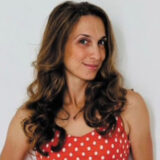 Julia Walton (MFA ’16)
Julia Walton (MFA ’16)
Author of “Words on Bathroom Walls”, “Just our Luck” and “On the Subject of Unmentionable Things”
What inspired you to become an author?
My third-grade teacher told me I was a good writer and I always kept that tucked away in my heart. The idea that someone could actually have a job writing stories for people to read seemed like a dream. Even as an adult I didn’t believe it was possible.
Then when I got trapped in a job I hated I realized that I could just stay in an industry that was not for me, or I could write to set myself free. Desperation was my inspiration.
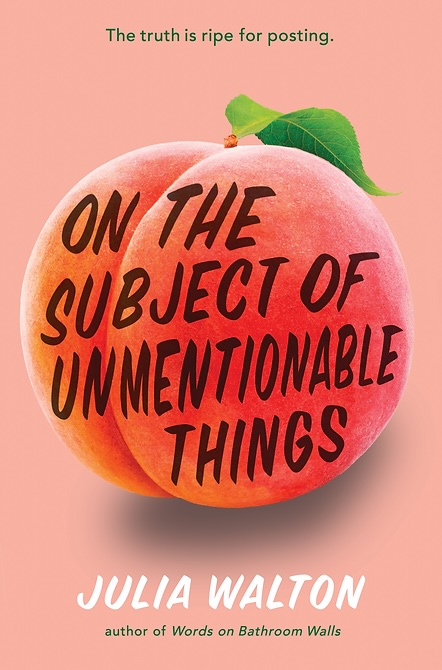 How did Chapman support and prepare you for life and your career? Any skills or lessons that have stuck with you?
How did Chapman support and prepare you for life and your career? Any skills or lessons that have stuck with you?
Chapman taught me about developing a writing community. I loved going to workshops, reading other people’s stuff, and getting feedback. It was exhilarating. I especially loved my workshops with Tom Zoellner, Jim Blaylock and Richard Bausch. Richard was the one who told me to call myself a novelist, which was huge for me. The first step to doing something is believing you can do it, and when other people help boost that confidence it is life-changing.
Jim Blaylock also introduced me to the Orange County School of Performing Arts where I had the privilege of teaching for a few years. Hopefully I can get back to that once all my kids are in school full time.
What advice/encouragement can you share with students or recent graduates who may want to become an author?
Read what makes you happy. Write a little bit every day. Be kind to yourself. Remember that every rejection is a tiny push towards your next story, even if it doesn’t feel that way.
Is there anything else you would like to share?
Since leaving Chapman I’ve written four novels: “Words on Bathroom Walls” ( 2017), now a major motion picture on Amazon Prime, “Just our Luck” (2020), “On the Subject of Unmentionable Things” (2022), and “Weirdly Walter”(coming October 22, 2024). “Weirdly Walter” is my first middle grade novel and I’m so excited to share it with the world. Stay tuned for its cover reveal in June and my bookmark giveaway for preorders!
Read more about what Chapman University Alumni are up to on our Class Notes page — and submit your own life updates for a chance to be featured!
